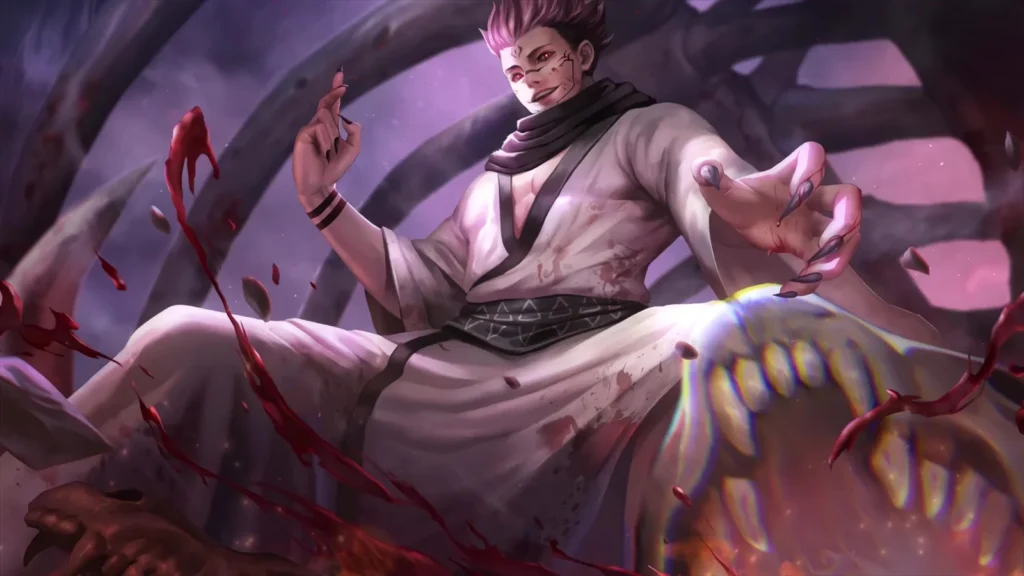Sukuna, the legendary King of Curses, is one of the most enigmatic and captivating characters in both Japanese folklore and modern anime. Known as Ryomen Sukuna in historical myths, his legacy has transcended time, finding new life as a pivotal figure in the popular manga and anime series Jujutsu Kaisen. But who is Sukuna, and what makes him such a compelling symbol of power, fear, and intrigue? This article delves into Sukuna’s rich origins, his portrayal in Jujutsu Kaisen, and his far-reaching impact on fans and culture alike.
Introduction to Sukuna
Origins and Mythology
Sukuna’s roots lie in ancient Japanese folklore, where he is described as a terrifying, two-faced demon. Historical records depict him as both a man and a monster, embodying a duality that reflects human struggles with power and morality. While details vary, Sukuna is often considered a symbol of rebellion against the norms of society, wielding immense strength that incited both fear and reverence.
The Role of Sukuna in Modern Pop Culture
Today, Sukuna has been reborn as a central character in Jujutsu Kaisen, one of the most celebrated anime of recent years. His sinister charm and overwhelming might have captivated audiences, cementing his status as an iconic antagonist.
Sukuna in Japanese Folklore
The Legend of Ryomen Sukuna
The name “Ryomen Sukuna” translates to “Sukuna of Two Faces,” symbolizing his physical and metaphorical duality. In some accounts, Sukuna was a tyrannical warlord; in others, he was a protector of his people. This contradiction makes him a fascinating figure whose story resonates across centuries.
Sukuna’s Symbolism in Folklore
Sukuna represents the thin line between heroism and villainy. His two faces—one human and one demonic—reflect the balance of good and evil that exists in all beings.
Sukuna in Jujutsu Kaisen
Character Overview
In Jujutsu Kaisen, Sukuna is introduced as a cursed spirit trapped within protagonist Yuji Itadori. Despite being an ancient entity, his presence drives much of the story’s conflict and complexity.
Powers and Abilities
Sukuna wields unimaginable power, from cursed energy manipulation to devastating domain expansions. His most iconic ability, the Malevolent Shrine, exemplifies his unparalleled mastery of destruction.
The Dynamic Relationship Between Sukuna and Yuji Itadori
Sukuna and Yuji share a parasitic relationship, blending animosity with begrudging cooperation. This duality adds depth to both characters, making their interactions a highlight of the series.
Sukuna’s Personality and Traits
Analyzing Sukuna’s Ruthlessness
Sukuna is the epitome of cruelty, but his actions often serve a larger purpose, revealing a strategic mind behind his mercilessness.
Insights into Sukuna’s Motivations
While Sukuna thrives on chaos, his deeper motives remain a mystery, inviting endless speculation from fans.
Cultural Impact of Sukuna
Sukuna’s influence extends beyond the screen. From elaborate cosplay to fan theories, his character has sparked creativity and discussions worldwide. Anime merchandise featuring Sukuna is in high demand, showcasing his enduring appeal.
Conclusion
Sukuna, whether as a mythical figure or the King of Curses in Jujutsu Kaisen, is a masterclass in character complexity. His blend of menace, charisma, and mystique ensures he remains unforgettable. Through Sukuna, we explore themes of duality, power, and morality—elements that make his story resonate deeply with audiences. As Jujutsu Kaisen continues to evolve, Sukuna’s legacy is bound to grow, cementing his place in the pantheon of legendary anime antagonists.



